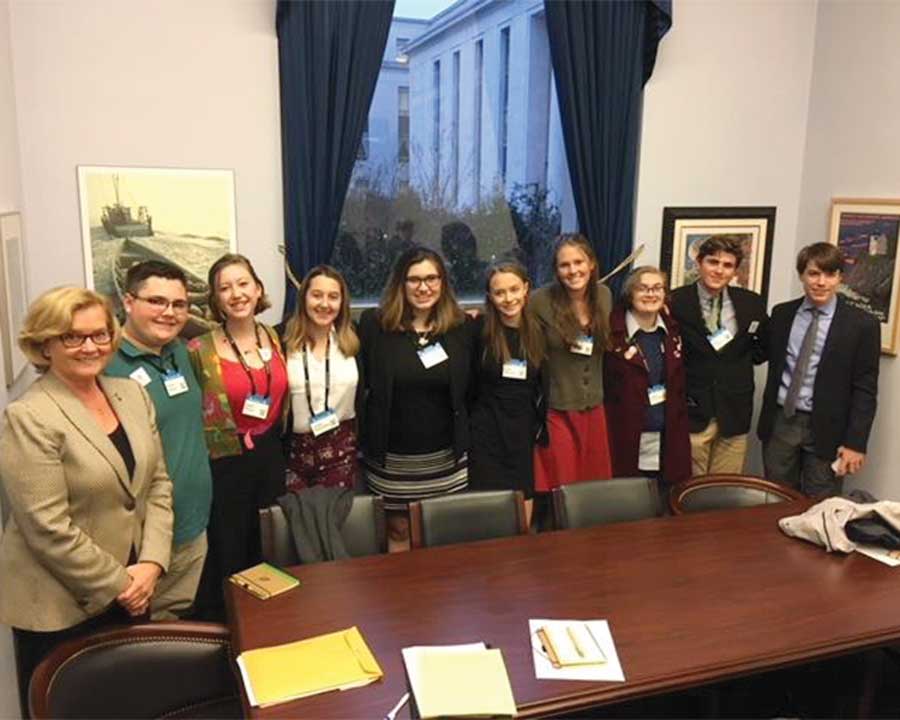
Congresswoman Chellie Pingree, representing Maine’s First District in the U. S. House, is cosponsoring the first bipartisan bill in a decade to directly address climate change.
Climate Security ‘Checks’
The bill, the Energy Innovation and Carbon Dividend Act, HR 763, would put a constantly rising price on carbon pollution and return all net proceeds in equal shares to American households as monthly Climate Security checks.
“This bill is the first, best step for fighting climate change,” said Sarah Braik, co-leader of the Portland chapter of Citizens’ Climate Lobby. “It will lower carbon dioxide emissions quickly and in the most cost-effective way. Consumers will be able to make smart decisions when they face prices that reflect the true costs of burning fossil fuels.”
Led by Florida Democrat Rep. Ted Deutch and Florida Republican Rep. Francis Rooney, the bill is intended to create over two million new jobs in 10 years, lower health care costs, and promote energy innovation. It is cosponsored by 14 other members of Congress
“The impact of climate change on Maine is far-reaching and undeniable,” Pingree said. “Congress must explore all options to reduce greenhouse gases and mitigate the damage fossil fuel emissions have done to our state and nation.”
“In this 116th Congress, I’m proud to support several legislative solutions, including the bipartisan Energy Innovation and Carbon Dividend Act, because a problem of this scale demands that we take comprehensive approach,” said Pingree.
Pingree Supports Green New Deal
Chellie Pingree, a Democrat, is also an original co-sponsor of the Green New Deal resolution that aimed at investing in renewable technologies and creating jobs in clean energy.
Pingree has also cosponsored a bipartisan bill to address the warming and acidification of oceans and estuaries. The Gulf of Maine is warming faster than almost any other part of an ocean worldwide, scientists report.
With Republicans controlling the Senate and Democrats the House, enacting any climate change solution will require bipartisan support. “The bipartisan Energy Innovation Act is a critical first step to contain the effects of climate change and preserve a livable world for our children and grandchildren,” said Ed Pontius, co-leader of CCL’s Portland chapter.
The Energy Innovation policy would place a fee on fossil fuels – coal, oil, and gas – paid for by producers at the oil well, coal mine, or port of entry. The fee would start at $15 per ton of carbon dioxide emissions and would grow $10 per ton each year. The monthly dividend checks aim to protect lower- and middle-income families from price hikes prompted by the fee.





